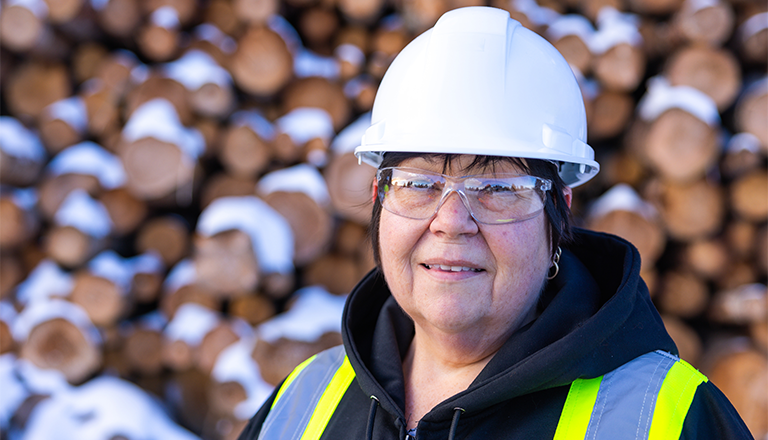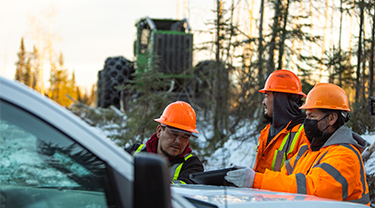If Canada aims to achieve net zero by 2050, collaboration with Indigenous companies is key, Todd Evans, Export Development Canada’s (EDC) national lead for Indigenous exporters, said during a recent webinar.
“As so aptly expressed by the First Nations Major Projects Coalition, the only road to net zero runs through Indigenous lands,” noted Evans, the moderator of the Path to net zero: How Indigenous companies can benefit webinar, which delved into Canada’s path to achieving net zero emissions by 2050 and offered advice to Indigenous companies on how to help governments and businesses meet that ambitious goal.
“Getting to net zero is a huge and complicated undertaking that will require a whole host of clean, renewable energy solutions such as solar, wind, small modular nuclear reactors, biomass and hydro facilities,” he explained. “How we produce and consume energy, including traditional oil and gas, will play a role in that transition.”Many of these projects, he pointed out, will be located on Indigenous lands, requiring Indigenous consent and collaboration.
The transition to net zero requires more electric vehicles (EVs) and all the supports that keep them on the road. Add to that an entire industry involved in mining the metals—copper, graphite, nickel, lithium, manganese, chromium and zinc, to name a few—needed for these activities.
“And it's not just Canada that will need these critical minerals—the whole world does,” Evans told the audience. “Canada has an abundant supply of many of the minerals that are most sought after.”
Mining companies sourcing these critical minerals are also seeking cleaner ways to power their operations, as well as other resource development companies operating in the energy, forestry and agriculture industries. These projects require large infrastructure investments—everything from buildings, road construction and site preparation to services needed to support the projects.
“When you add that all up, it spells opportunity,” Evans said. “And Indigenous companies are strongly positioned to capitalize. The question you must ask yourself is how your business can make the most of this opportunity.”
You should also check out
Indigenous procurement in a net zero economy.
Preparing for partnerships and procurement
Indigenous companies with the most to gain are owned by, or associated with, Indigenous economic development corporations that invest profits back into their community in the form of jobs, infrastructure, opportunities for youth and economic independence.
But they must be prepared with vetted financial statements, up-to-date safety and service records, and a clear business plan. They must also pay attention to the unique needs of potential partners.
Cameco Corporation, one of the largest global providers of uranium, a fuel source that can contribute to a cleaner air future through lower emissions, has been an active supporter of long-term sustainable partnerships.
“In 2023, Cameco procured 74% of our total service spend in Northern-owned businesses,” Kristin Cuddington, the company’s director of community and Indigenous engagement, said on the webinar. She advised would-be bidders to make sure they understand what any procurement department is looking for in terms of goods or services, as well as the scope of the work.
If a business doesn’t have the ability to execute the work, she suggests finding a partner that can. Working collaboratively with other suppliers is often an effective strategy in winning new business, especially when those partners can each bring their own unique value-add.
In other cases, Cameco will fill the gaps.
The company has been working with an Indigenous business that didn’t have the internal capacity to take on some of its proposed projects, so Cameco sent its own project managers and human resources people to help.
“Today, that same company has taken most of the road maintenance contracts within our mine sites,” Cuddington said. “Corporate mentorship is key. If you're willing to work hard and build skills, a lot of doors can open.”
Likewise, Rio Tinto, the largest mining and metal company operating in Canada, works with Indigenous companies in several areas, including forestry, excavation, chemicals, IT services, road maintenance and infrastructure development.
Sylvain Lemay, general manager of procurement, said his company garnered $ 200 million worth of services from Indigenous suppliers in 2023.
Lemay said Rio Tinto’s procurement team evaluates the competitiveness of suppliers, safety, technical capabilities, sustainability and commercial aspects of the bid.
“We also aim to focus on long-term partnerships instead of one-shot deals with Indigenous companies, and we try to increase their participation in our projects and help them to grow with us at the same time,” Lemay said.
Rio Tinto has also developed a supplier portal on its website, specifically targeted to Indigenous suppliers, after receiving feedback that it was difficult to access and navigate procurement systems at big companies, like Rio Tinto.
“This is probably the best tool the team has put together in the last year,” he said, adding the company’s relationship with Indigenous communities is based on trust and has local Indigenous teams fully dedicated to building these relationships.
His best piece of advice for Indigenous companies that want to engage with Rio Tinto: Register through its portal, where you can see what projects are coming up the following year and what the company’s needs will be.
Benefits for buyers and sellers
For the large players preparing Canada’s path to net zero, there are inherent benefits to working with Indigenous companies, including economic reconciliation.
To build your Indigenous company’s capacity and equity, Jaimie Lickers, senior vice-president of Indigenous Markets for CIBC, said having audited financial statements is paramount. You also need a business or project plan and must ensure the information provided is thorough, reliable, up-to-date, and well-researched.
With transparent financials and a comprehensive business plan, your creditors, buyers and other business associates will have much more confidence in your ability to deliver, she says.
She added that she has seen many excellent partnerships between Indigenous and non-Indigenous companies that have resulted in strong benefits for both sides.
You can view the entire webinar here. If you have questions, you can call 1-800-229-0575 and speak to one of EDC’s trade advisors.




